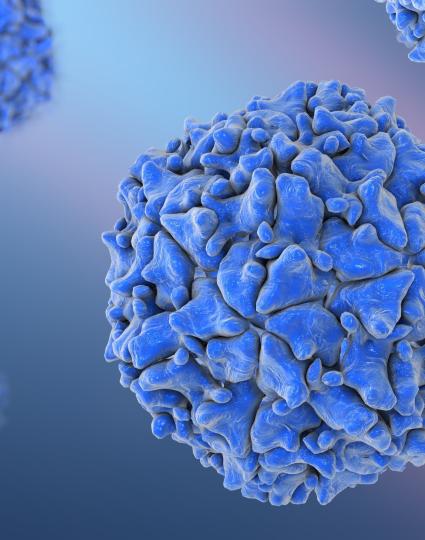Polio
About the polio vaccine
- The polio vaccine protects against polio, a disease caused by infection with the poliovirus.
- In the Yukon, polio is a part of the combination immunization DTaP-HB-IPV-Hib, which protects infants and children from diphtheria, tetanus, pertussis, hepatitis B, polio and haemophilus influenzae type B, all in one vaccine.
- This vaccine is given as a series of 3 doses.
- A booster dose (DTaP-IPV) is given to children when they start school for lifelong polio protection.

